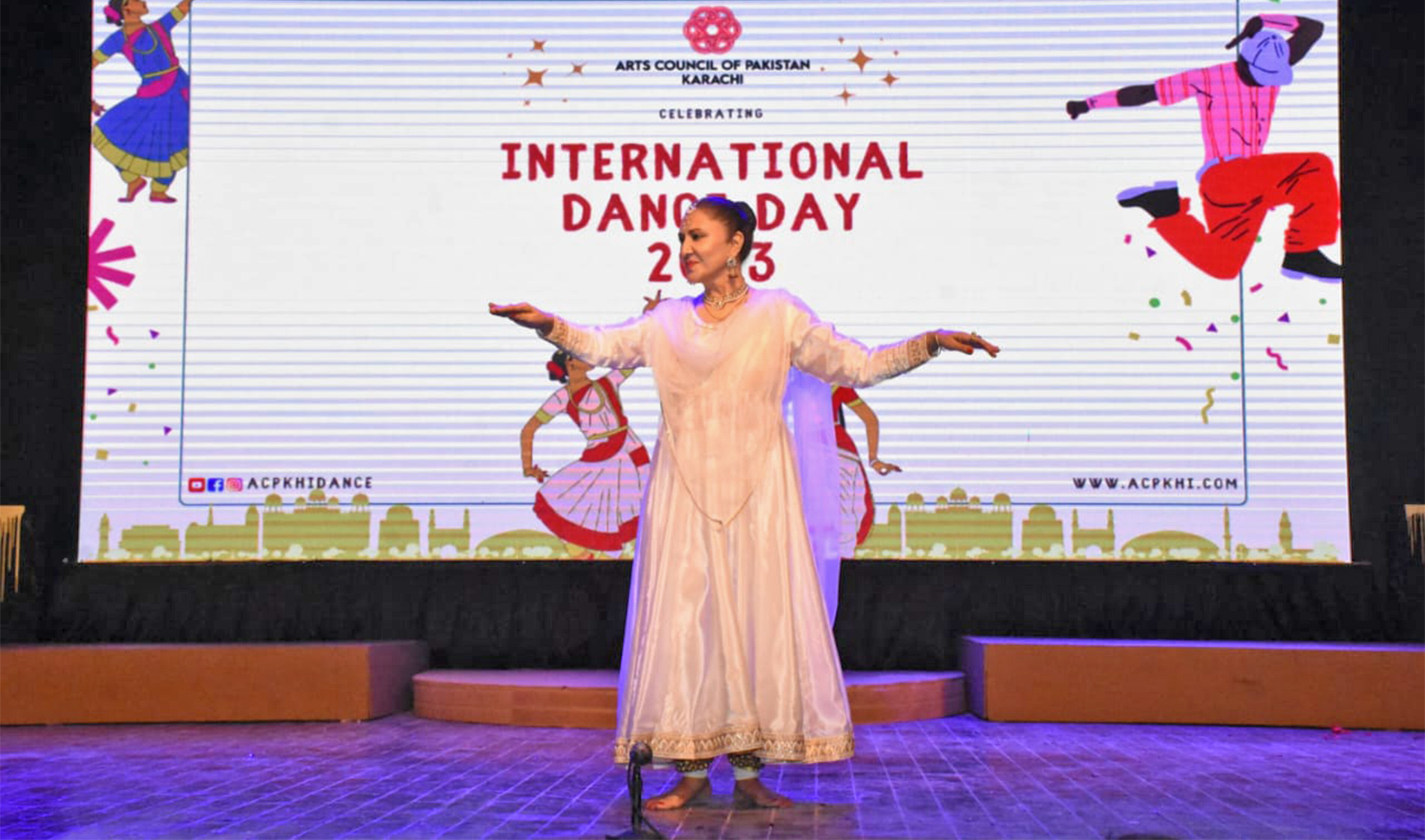KARACHI: Prominent Pakistani artists came together on Saturday to mark International Dance Day, observed globally on April 29, by lamenting the lack of respect for the art form in their country where most people had forgotten the history of the region and its culture.
The artists were invited by the Arts Council of Pakistan (ACP) in Karachi, which arranged 21 dance performances to commemorate the day. The three-hour-long event was open to the public, and the auditorium was packed with dance enthusiasts, with some people sitting on the floor and stairs.
The leading performers included Pride of Performance winner Nighat Chaudhry, Adnan Jahangir, and Kaif Ghaznavi, among others. Most of them highlighted the challenges faced by people associated with the profession.
“I want to associate myself with dance which is a taboo in this country,” ACP President Muhammad Ahmed Shah said in his welcome speech. “It’s not a matter of religion. It is a cultural issue.”

The picture taken on April 29, 2023, shows Mohsin and Ayesha performing Sufi contemporary dance in Kathak style, titled Ishq-e-Khusro, during an event to celebrate International Dance Day at the Arts Council of Pakistan in Karachi, Pakistan. (Photo courtesy: Arts Council of Pakistan)
Shah said he was hopeful that changing times had opened various avenues for aspiring dancers who wanted to pursue the art form.
However, prominent Pakistani dancer Wahab Shah, whose students performed at the event, said the amount of hard work he had done to make a name in Pakistan would have earned him state-level recognition in developed countries.
“Pakistan is the most difficult country for dancers to be in because there are no platforms, accolades, or recognition in award shows,” he told Arab News on Saturday from London, adding Pakistani people had largely “disowned their culture” which originated within the region.

The picture taken on April 29, 2023, shows a dance group called Sajan performing on freestyle Bollywood fusion dance during an event to celebrate International Dance Day at the Arts Council of Pakistan, Karachi. (Photo courtesy: Arts Council of Pakistan)
Daniya Kanwal, a TikTok star who pursued dance as a career five years ago, also agreed that the art form was not widely accepted in the country.
“As a female artist, it gets more difficult due to the misogynistic and patriarchal attitudes,” she said. “I have had a lot of problems because of my family and what the society will say. People say you can’t pursue dance as a profession since it’s not a respectful form of art.”
However, Nighat Chaudhry, a popular Sufi and Kathak dancer who gave the final performance for the evening, maintained things were gradually changing.
“Social media has given access and exposure to young people,” she told Arab News. “It takes the taboo off. It makes it normal … You can’t stop it anymore. Kids are learning these things in their rooms. The mindset is changing. But it’s a process.”

The picture taken on April 29, 2023, shows prominent Pakistani artist Nighat Chaudhry performing during a show to celebrate International Dance Day at the Arts Council of Pakistan in Karachi, Pakistan. (Photo courtesy: Arts Council of Pakistan)
Provincial Minister of Culture in Sindh Syed Sardar Ali Shah, who was also present at the occasion as chief guest, emphasized that his government wanted to promote dance in Pakistan.
“Dance is our tradition,” he said. “It is evident in the dancing girl that was found in Mohenjo Daro 5,000 years ago. It is the tradition of Baba Bulleh Shah. We need to break the taboo [around it].”
The performances by Pakistani dancers displayed their talent and dedication to the profession. Many of them also underscored the importance of promoting and supporting arts in the country.












